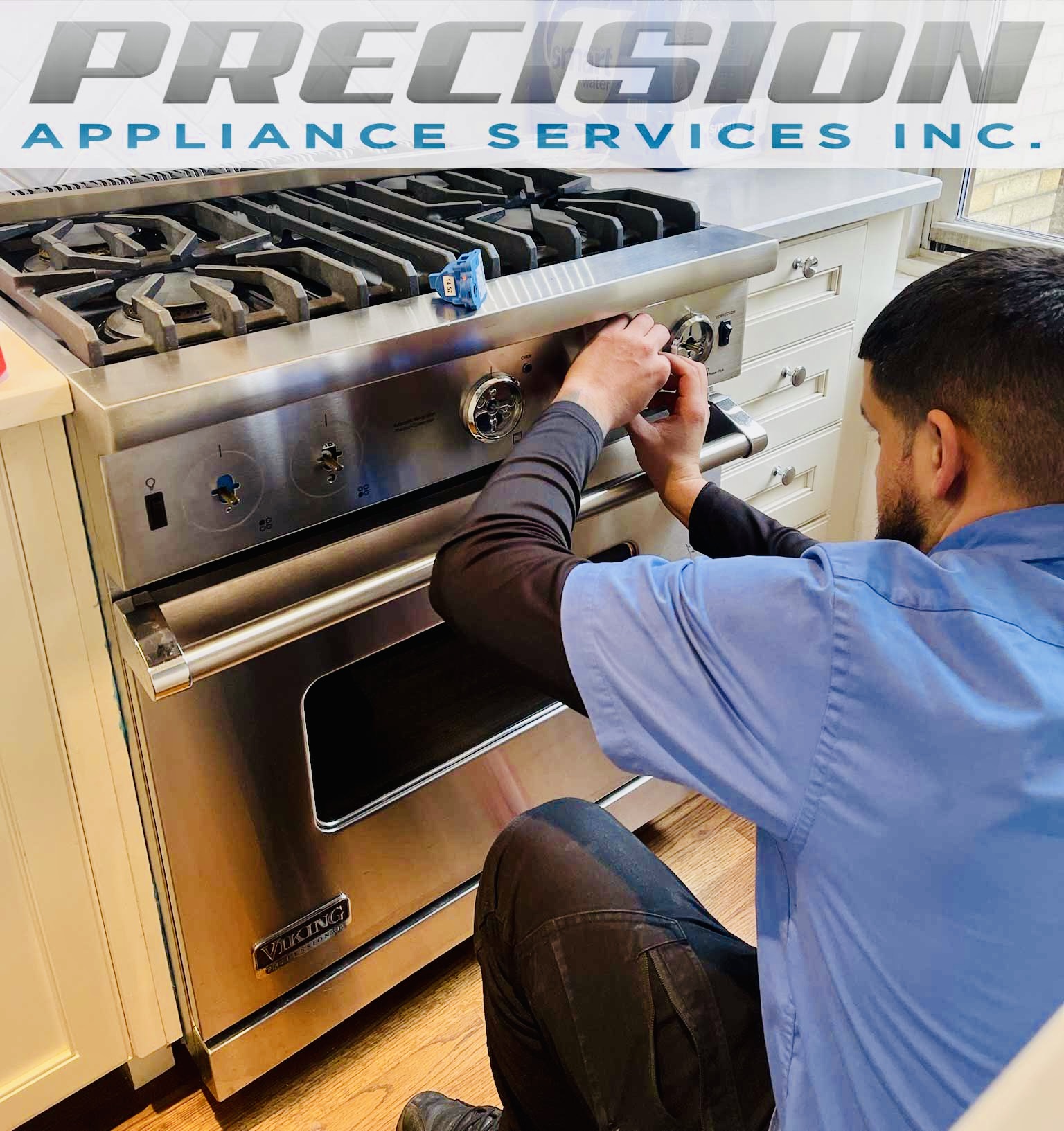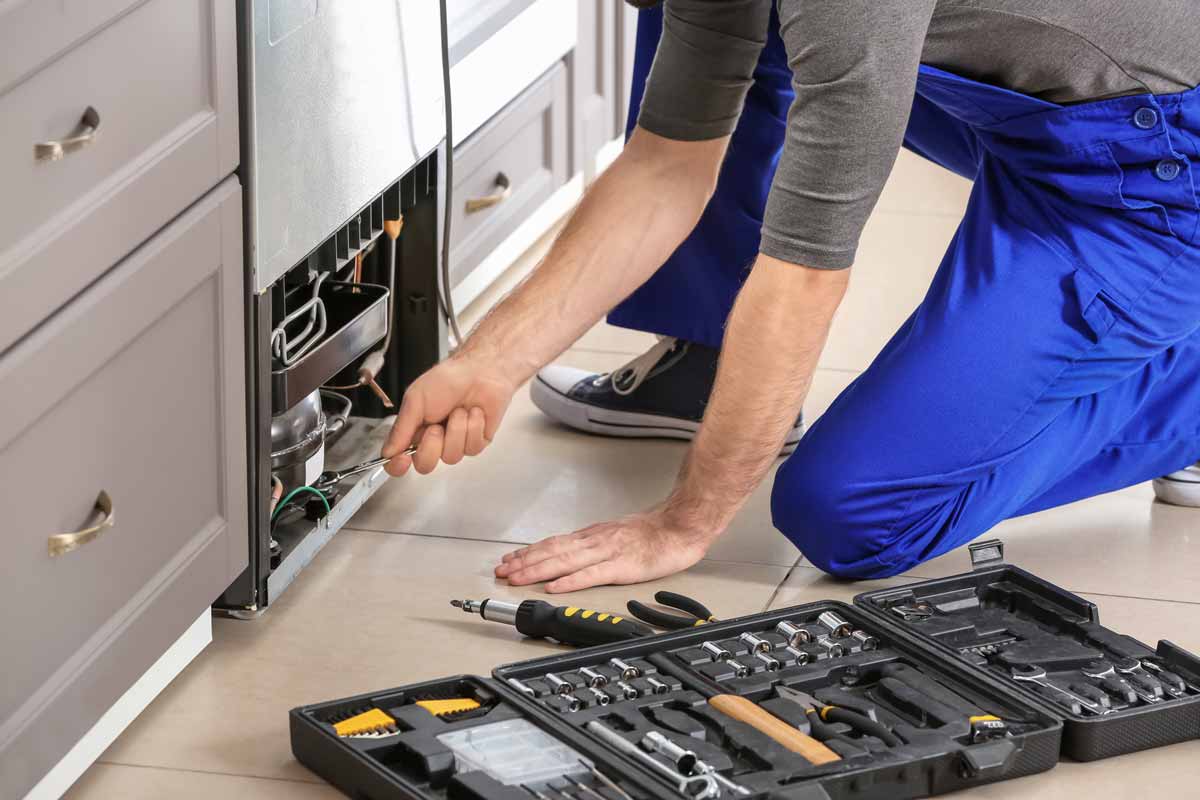The Ultimate Overview to Understanding Appliance Repair in your home
When your fridge quits cooling down or your oven rejects to heat, it can really feel overwhelming. Comprehending device fixing at home can save you time and money. You'll learn to recognize signs and symptoms, make use of essential devices, and follow an organized troubleshooting procedure. Prior to you start, there are essential safety and security precautions you need to take right into account. What are one of the most typical problems, and exactly how can you fix them? Allow's check out the basics.
Common Device Problems and Their Signs and symptoms
When your home appliances start breaking down, it's necessary to acknowledge the indicators at an early stage. Disregarding them can cause larger problems and costly repair work. If your fridge isn't cooling down correctly, you could see cozy places or condensation creating. This might suggest a failing compressor or an obstructed vent.Your dishwasher might show issues via unclean meals or unusual noises during cycles. If you hear grinding or clanking, it's time to investigate.A cleaning maker that will not spin or drain pipes can leave you with soaked laundry, recommending a stopped up drain or a malfunctioning pump.Lastly, if your oven's temperature seems off or it takes forever to pre-heat, you could be taking care of a defective thermostat. By staying sharp to these signs and symptoms, you can resolve problems prior to they intensify into major repair work.
Important Tools for Home Appliance Repair Service
When you're tackling device repair services in your home, having the right devices is vital. Basic hand tools like screwdrivers and pliers will help you dismantle and take care of different home appliances, while electrical screening gadgets ensure you're working securely with electrical wiring. Let's review what you need to get going on your repair work journey.
Standard Hand Devices
Having the right tools is crucial for effective device repair work in your home. Beginning with a reputable screwdriver set, consisting of both flathead and Phillips kinds, as screws are typical in home appliance assembly. Pliers are additionally essential; they aid with gripping, turning, and reducing cables or small elements. A pair of needle-nose pliers can get to limited areas conveniently. You'll require an excellent adjustable wrench for tightening or loosening nuts and bolts. An utility knife comes in handy for puncturing packaging or insulation. Don't forget a tough workbench or surface to securely organize your devices and components. With these basic hand devices, you'll be well-prepared to tackle most appliance repair services that come your means.
Electrical Screening Devices
Together with fundamental hand tools, electrical screening tools play an important duty in appliance repair. These devices help you diagnose electric issues and warranty devices work safely. A multimeter is essential; it gauges voltage, existing, and resistance, allowing you to determine troubles promptly. A non-contact voltage tester is an additional must-have, letting you spot live cables without making direct get in touch with, improving your safety. Secure meters are great for measuring current circulation in wires without separating them, conserving you effort and time. Additionally, circuit testers can promptly inspect if outlets are operating appropriately. By utilizing these devices, you'll simplify your troubleshooting procedure and improve your repair service abilities, making device upkeep a lot less complicated.
Step-by-Step Overview to Diagnosing Appliance Issues
When your home appliance acts up, it can be aggravating, however identifying the problem does not have to be overwhelming. You'll find out to identify common problems and apply reliable repairing methods. Let's go through the actions to get your device back in functioning order.
Typical Home Appliance Troubles

Repairing Methods Described

Repairing Significant Kitchen Area Devices: A Closer Look
Have you ever wondered how to deal with common concerns with your cooking area appliances? Repairing major kitchen devices like refrigerators, stoves, and dish washers can be much easier than you think. Start by determining the problem-- whether it's a refrigerator not cooling or a stove that will not heat. Typically, a simple reset or examining the source of power can resolve the issue.For fridges, clean the condenser coils and inspect the door seals. If your oven's not heating, inspect the heating component and thermostat. Dish washers might simply require a tidy filter or a reset to obtain them back at work. Always unplug the appliance prior to diving into repair work to assure your safety.Don' t fail to remember to consult the customer manual for certain troubleshooting pointers related to your design. With a little bit of patience and the right devices, you can with confidence tackle home appliance fixings and conserve cash in the process!

Repairing Washing Appliances: Tips and Techniques
When your laundry appliances start acting up, it can feel frustrating, however repairing them does not need to be a headache. Begin by checking the power supply. Verify the home appliance is connected in and the electrical outlet is operating. Next, check the door or lid button; a damaged switch can stop the equipment from operating.For washers, if it's not rotating, check for out of balance loads. Redistributing the clothing could address the issue. If your dryer isn't heating, clean the lint filter and check the air vent for blockages.Listen for uncommon noises; they can indicate a problem. If your device is leaking, check the hose pipes for splits or loose connections. Record any error codes presented on electronic displays, as they can direct you in recognizing the issue. Consult the individual handbook for particular troubleshooting tips connected to your model.
Safety And Security Precautions to Take During Services
Prior to you start any kind of appliance repairs, it's important to focus on safety and security to stop crashes or injuries. Unplug the appliance or transform off the circuit breaker to guarantee no power reaches it while you work. Usage protected tools to reduce the threat of electrical shock. Use safety goggles and gloves to shield on your own from sharp edges or debris (Washer dryer repair service Dependable Refrigeration).Make certain your work area is tidy and well-lit, so you can see what you're doing. Maintain children and pet dogs far from the area to stay clear of diversions and prospective dangers. If you're handling gas appliances, be extra cautious; look for leakages prior to proceeding.Take your time, and do not hurry via repair services. If you really feel unclear concerning any type of step, it's far better to pause and research than to think. Following these safety measures will certainly help produce a much safer setting for your do it yourself appliance repair service task
When to Call a Professional for Help
How do you know if it's time to call in a professional for appliance fixings? If you've attempted basic troubleshooting without success, it's a clear indication. If your device still will not start or shows unusual noises after resetting it, do not hesitate to seek expert help.When you observe leaks, smoke, or burning smells, focus on security and call a pro quickly. These concerns can bring about even more significant damage or posture risks to your home.Also, if your appliance is under guarantee, contacting a specialist is commonly the best course. They can ensure that repair services will not invalidate your service warranty, saving you money in the long run.Finally, if you're uncertain or unpleasant with intricate repairs, it's smart to leave it to the professionals. Keep in mind, dealing with complicated concerns without the ideal knowledge can cause costly mistakes. Trust an expert when in uncertainty!
Frequently Asked Questions
Just How Can I Avoid Appliance Problems in the Future?
To stop home appliance issues in the future, you must carry out normal upkeep, check for deterioration, tidy filters, and prevent overloading. Remaining positive will help expand their lifespan and keep them running efficiently.
What Are the Most Usual DIY Home Appliance Repair Service Mistakes?
You might forget safety preventative measures, miss repairing steps, or use incorrect tools when trying do it yourself appliance repair work. Rushing the process or ignoring supplier standards can lead to even more substantial concerns and costly mistakes. Stay patient and notified!
How Do I Know if a Part Requirements Substitute?
You can inform if a part requires replacement by examining for uncommon sounds, leakages, or irregular performance. If the device battles to operate properly or shows visible damages, it's likely time for a replacement.
Can I Use Generic Parts for Appliance Repair Works?
Yes, you can utilize generic components for home appliance repair work, yet determine they work - Kenmore Dryer Repair Oro Valley Dependable Refrigeration & Appliance Repair Service. Generic components could save you cash, but they could influence efficiency or durability, so consider your alternatives meticulously before deciding
What Warranties Cover Appliance Repair Works?
Most home appliance service warranties cover fixings for making problems, however they commonly leave out damages from misuse. Check your warranty terms very carefully, as some could require using licensed professionals and initial components for coverage to remain valid.